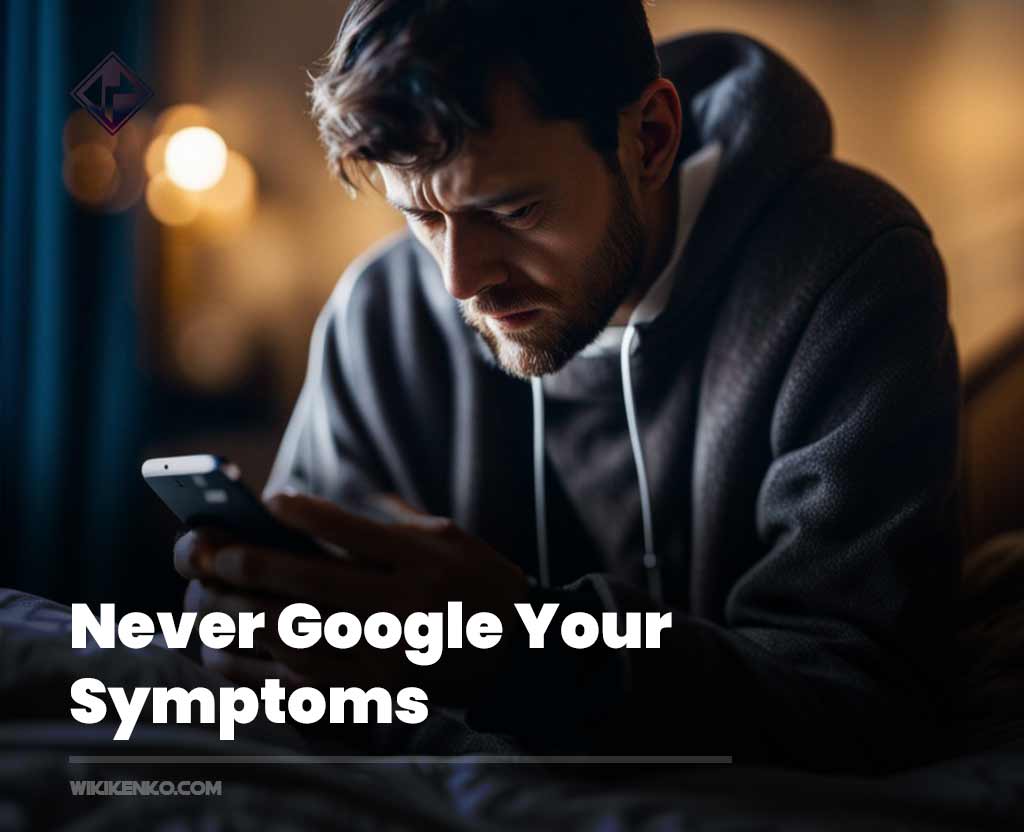|
Getting your Trinity Audio player ready...
|
In this article, we delve into the concept of Cyberchondria, a condition that has become increasingly prevalent in today’s digital age. Our aim is to help you understand cyberchondria and provide you with useful strategies to overcome its impact on your mental health.
What is it?
Cyberchondria refers to the excessive and persistent anxiety associated with searching for health information online. With the vast amount of medical information available on the internet, individuals may develop irrational fears and anxieties about their health, often misinterpreting benign symptoms as serious medical conditions.
Signs and Symptoms
1. Excessive Searching
Individuals with cyberchondria tend to engage in compulsive and repetitive online searches for health-related information. They may spend significant amounts of time researching symptoms, diseases, and potential treatments.
2. Misinterpretation of Information
Cyberchondriacs often misinterpret medical information, leading to heightened anxiety and unnecessary worry. They may attribute common symptoms to severe diseases, even in the absence of medical evidence or professional diagnosis.
3. Increased Health Anxiety
One of the hallmark features of cyberchondria is the presence of heightened health anxiety. Individuals may experience persistent worry about their health, fearing the worst-case scenarios and catastrophizing minor symptoms.
4. Continual Seeking of Reassurance
Cyberchondriacs frequently seek reassurance from healthcare professionals, friends, or online communities to alleviate their health-related anxieties. However, this reassurance-seeking behavior often provides only temporary relief and perpetuates the cycle of anxiety.
Never Google Your Symptoms
Coping Strategies
1. Limit Online Searches
Reducing the frequency and duration of online health searches can help break the cycle of cyberchondria. Set specific time limits for seeking health information online and avoid excessive searching outside of those designated periods.
2. Seek Reliable Sources
When researching health information, rely on reputable sources such as government health websites Like U.S. Food and Drug Administration (fda.gov), medical journals, and trusted healthcare organizations. Be cautious of anecdotal experiences and unverified information from non-professional sources.
3. Practice Mindfulness and Self-Care
Engage in mindfulness techniques and self-care practices to manage anxiety associated with cyberchondria. Regular exercise, relaxation exercises, and activities that promote mental well-being can help alleviate stress and promote a healthier mindset.
4. Maintain Open Communication with Healthcare Professionals
If you have concerns about your health, it is important to consult with a qualified healthcare professional. Maintain open and honest communication, express your worries, and seek professional guidance to receive accurate medical advice.
5. Consider Therapy or Support Groups
If cyberchondria significantly impacts your daily life and mental well-being, consider seeking therapy or joining support groups. Cognitive-behavioral therapy (CBT) can be particularly helpful in addressing anxiety disorders.
Conclusion
Understanding and addressing cyberchondria is essential in maintaining a healthy relationship with online health information. By recognizing the signs and symptoms, adopting coping strategies, and seeking appropriate support, you can navigate the digital landscape with greater confidence and protect your mental well-being.
At Wikikenko, we are committed to providing you with accurate information and empowering you to make informed decisions regarding your mental health.
Frequently Asked Questions (FAQs)
-
Is cyberchondria a diagnosable mental health disorder?
it is not currently recognized as a formal psychiatric diagnosis. However, its symptoms and impact on mental health are recognized and can be addressed through appropriate interventions.
-
How can cyberchondria affect mental health?
it can lead to heightened anxiety, increased stress levels, and a negative impact on overall mental well-being.
-
Can cyberchondria be self-managed without professional help?
While self-help strategies can be beneficial, seeking professional help, such as therapy, can provide additional support and guidance in managing it.
-
Are there any online resources or communities for individuals with cyberchondria?
Online communities and forums dedicated to health anxiety or anxiety disorders can provide support and a sense of community for individuals struggling with it.
-
How long does it take to overcome cyberchondria?
The duration of overcoming it varies from person to person. With appropriate strategies, professional help, and self-care, individuals can experience significant improvement over time.






